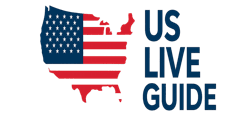New York City (NYC), known as the financial and cultural capital of the United States, is home to one of the most dynamic and competitive labor markets in the world. With millions of workers across finance, healthcare, hospitality, technology, and countless other sectors, understanding employment opportunities, workers’ rights, and labor law is essential for both employees and employers.
1. Employment Opportunities in New York City
New York City’s job market is incredibly diverse, offering career paths across many industries:
-
Finance and Banking: Wall Street remains the heart of the global financial system, employing thousands in investment banking, trading, and corporate finance.
-
Technology: NYC has become a growing tech hub, with startups and established firms offering opportunities in software, fintech, and cybersecurity.
-
Healthcare: Hospitals, clinics, and private practices are among the largest employers, offering roles for doctors, nurses, and administrative staff.
-
Hospitality and Tourism: With millions of visitors every year, hotels, restaurants, and entertainment venues provide steady employment opportunities.
-
Media and Arts: NYC remains the epicenter of publishing, broadcasting, and creative industries.
The city’s vast job market attracts workers from around the world, but it also brings challenges such as high competition and high living costs.
2. Workers’ Rights in New York
New York provides workers with extensive protections that go beyond federal labor laws. Some key rights include:
-
Minimum Wage: As of 2025, the minimum wage in New York City is higher than the federal minimum wage, currently set at $16 per hour for most workers.
-
Paid Sick Leave: Workers in NYC are entitled to earn sick leave—employers with more than five employees must provide paid leave.
-
Overtime Pay: Non-exempt employees must receive 1.5 times their regular pay rate for hours worked beyond 40 per week.
-
Anti-Discrimination Protections: The New York City Human Rights Law is one of the broadest in the country, protecting workers from discrimination based on race, gender, sexual orientation, religion, immigration status, and more.
-
Right to Organize: Workers have the right to join unions and engage in collective bargaining without retaliation.
3. Labor Law in New York City
New York labor laws are among the strictest and most employee-friendly in the United States. They cover:
-
Wage Theft Prevention: Employers must provide clear wage statements and cannot withhold pay.
-
Workplace Safety: OSHA standards apply, but New York also has additional regulations to protect workers in industries like construction and healthcare.
-
Employment Contracts: Many NYC employees work “at-will,” but written contracts are common in finance, media, and tech.
-
Immigrant Worker Protections: NYC laws ensure that undocumented workers are still entitled to fair wages and safe working conditions.
4. Common Workplace Issues and Legal Disputes
Despite strong protections, workers in NYC often face challenges such as:
-
Unpaid overtime or wage theft.
-
Workplace discrimination or harassment.
-
Wrongful termination.
-
Unsafe working conditions.
Legal disputes are often resolved through the New York State Department of Labor, the Equal Employment Opportunity Commission (EEOC), or private litigation.
5. The Role of Unions in New York
New York City has one of the highest union membership rates in the United States. Unions play a significant role in industries such as construction, transit, and education, negotiating for better pay, benefits, and working conditions.
6. Future of Employment and Labor in NYC
Looking ahead, several trends will shape the city’s labor market:
-
Remote and Hybrid Work: The pandemic permanently altered work culture, and many employers continue to offer flexible arrangements.
-
Gig Economy Expansion: Workers in ride-sharing, delivery, and freelance industries are pushing for stronger labor protections.
-
Rising Cost of Living: The high cost of housing and transportation continues to affect both wage demands and labor disputes.
-
Green Jobs: New York’s commitment to sustainability is creating opportunities in renewable energy, construction, and environmental technology.
